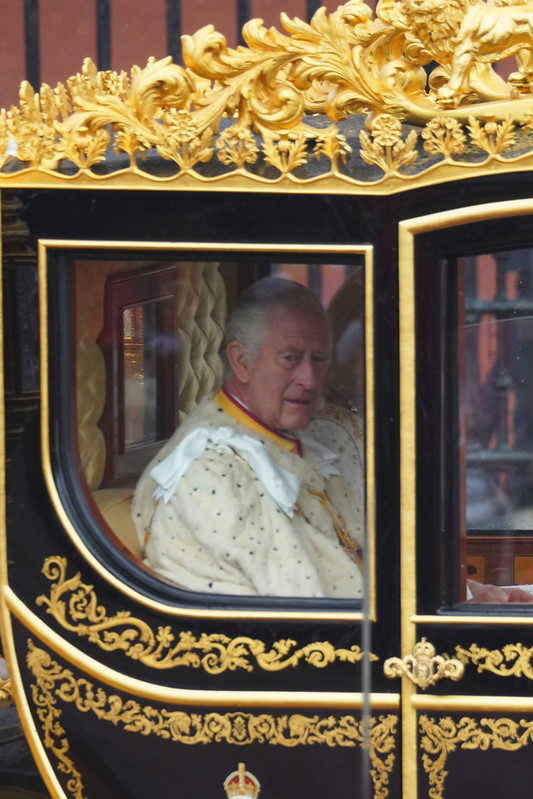As support, here is another piece of writing by Richard O'Sullivan: Common Law Succession (1950) stated:
Hubert Walter (later Archbishop of Canterbury) and Henry of Bracton argued that it was not unreasonable to refer to English laws and customs as laws, even though they were not written down.
The implications are clear not just to the British people, but to the Commonwealth as well: citizens can take King Charles at his word and legally assert their right to trial by jury. This gives juries the power to hold mistrials. If a jury finds a law invalid, it has the power to acquit someone who has been found guilty of breaking the law.
according to William KeytThis is where democracy comes into its own, as the jury has the power to strike down bad laws.Importantly, Charles' oath promises to abide by the “laws and customs” of the kingdom, providing necessary support for the assertion of democratic principles.
Now that we have fully understood the power of the kingdom’s commitment to “laws and customs,” let us turn now to Charles’ second commitment: adherence to “God’s laws.” What does this add?
b. God's Law
Elizabeth II pledged to obey “the law of God,” a pledge that was repeated in Charles's vows. The first five books of the Bible, the Pentateuch, make frequent references to God's law, indicating that it is considered the final authority on law and is therefore immutable. We see this, for example, from the following verse in Deuteronomy:
4:2 Ye shall add nothing to the word which I command you, neither shall you take anything away from it, that ye may keep the commandments of the LORD your God, which I command you.
12:32 All things whatsoever I command you you shall be careful to do, and you shall not add anything to them or take anything away from them.
It is clear that Deuteronomy forbids adding to God's law, which means that a monarch who has included these words in her oath must refrain from adding her signature to any new law, as to do otherwise would be in breach of her oath. Queen Elizabeth II signed at least 4,272 statutes during her reign from 1953 to 2022. And the fact that this violated her oath not only invalidated the statutes, but also invalidated the institutions that derive their powers from the monarch, such as HM Courts, HM Revenue & Customs, and HM Government. According to Hubert Walter and Henry de Bracton, the assertion that the phrase “laws and customs” supports this view is that it upholds the “laws and customs” of the kingdom. Exclusion Codified law.
As if this were not enough, the promise to obey “the law of God” goes even further. In fact, according to Deuteronomy, the Gentiles, or what we would call foreign powers today (this double meaning of “foreign” and “foreign” is also found in the French language). foreigner) is a violation of God's law. Here is the relevant verse from Deuteronomy that forbids giving authority to strangers in the land:
17:14 And thou shalt come into the land which the LORD thy God giveth thee, and possess it, and dwell therein, and say, I will set a king over me, as over all the nations that are round about me;
17:15 Thou shalt surely make him thy king, whom the LORD thy God shall choose: of thy brethren shalt thou make thy king: thou shalt not make a stranger over thee, that is not thy brother.
What does this mean? It means that any delegation of power to a foreign power, whether that be the European Union or the World Economic Forum, is against God’s law. European Communities Act 1972 or Treaty of Lisbon In 2009, she broke her oath because both bills would have handed British powers over to overseas bodies.
The jury is still out on whether Prince Charles will continue his support of the World Economic Forum (WEF) as he did under Prince Charles. We do know that he continues to support the WEF and the UN's carbon emissions reduction policies, as evidenced by his participation in the “Climate Countdown” initiative on June 28. His actions in supporting overseas organizations must therefore be closely monitored.
And more generally, there is the great question of whether the actions of a prince are in harmony with the law of God. So I will end by considering this very important question.
Divine Law as the Ultimate Arbitrator
Over time, many prominent scholars have advocated the idea that God's law takes precedence over human law when human law conflicts with divine principles. For example, Aristotle wrote: Nicomachean Ethics (V, 7) states that what is “essentially right” is not necessarily the same as what is “legally right.” Justinian's Code This theme continues in the common law discussion (Jesus Commune) and its treatment make clear the distinction between sentences according to natural justice and sentences according to the letter of the law. Polycratic, Written in the 12th century, this sacred text counsels that human laws should not be enforced when they conflict with natural law.
This view was continued by the great 13th-century Italian theologian Thomas Aquinas, who argued that “human laws that are incompatible with the natural law are not laws, but perversions of the laws.” In the 18th century, Sir William Blackstone, the great compiler of English common law and Chief Justice of the United Kingdom, said:
If human law permits or requires us to violate natural or divine law, then we are obliged to violate human law, or else we will violate both natural and divine law.


